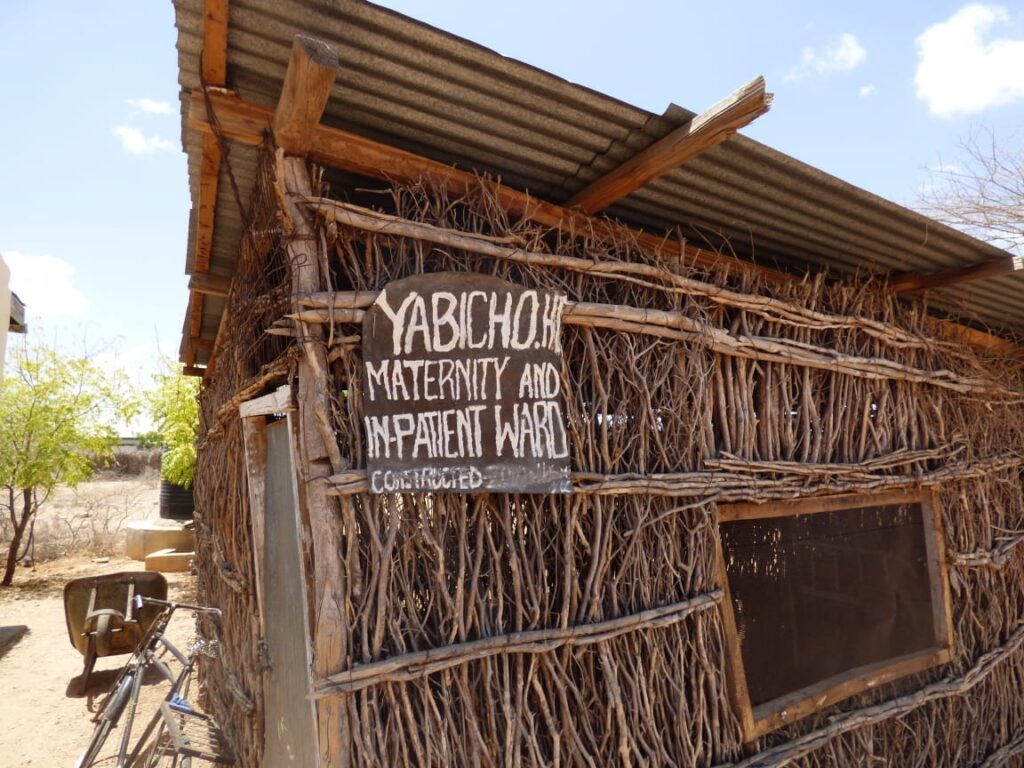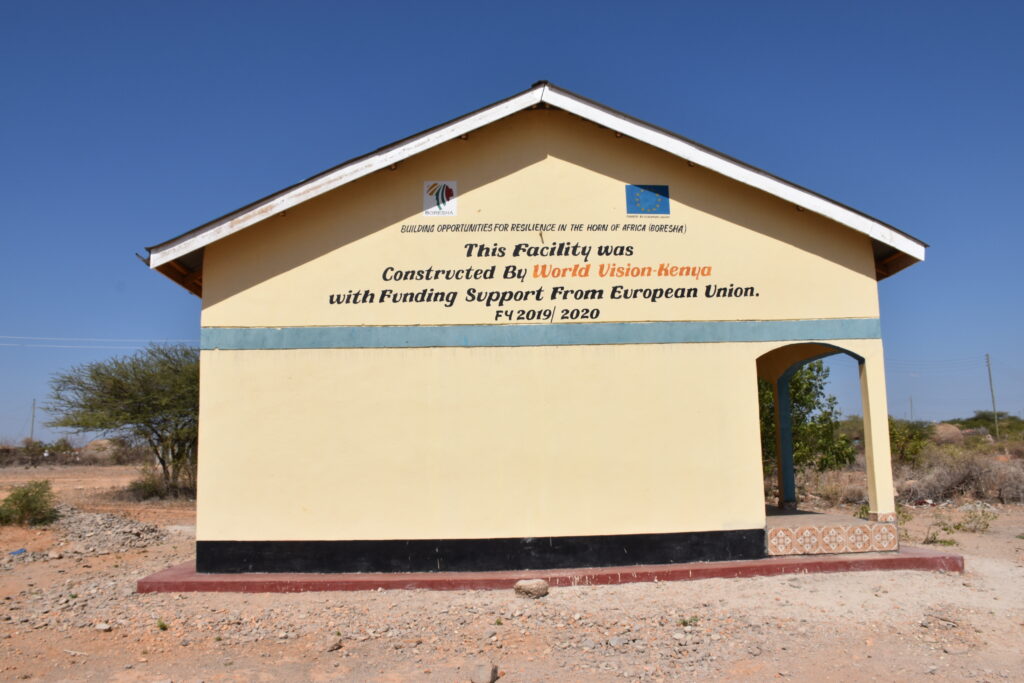New Yabicho Maternity Unit And In Patient Ward
By Abdulaziz Hassan | BORESHA Project
It is a bright morning in Yabicho village, children play in the dusty field of the primary school while a group of people comprising of the school health committee and key village elders gather under a shade in the homestead of Mohamed, their chairman discussing the new health project implemented by World Vision under the BORESHA program with Support from EU.
A cold breeze sweeps across our face, women return from the water point amid the chirping of birds on the acacia trees nearby. It is the start of another bright day in Yabicho- complete with hope and good anticipation of better things to come in the near future.
We meet facility in-charge Jonathan Ngaile as he is doing his routine chores at the facility. He ushers us into his office and directs us to some neat chairs to sit; his face lit with a smile as he welcomed us. We asked him about the situation of the health infrastructure in the village and he responds; “we had a big challenge in the past where we used to utilize one dilapidated room for maternity, immunization and general ward. The maternity accommodated only one mother per delivery and where more than one is admitted, the nurse in-charge used a semi-permanent house to deliver the mothers.” Narrates Mr. Ngaile, gesticulating and seemingly recounting past events. “That structure was semi-permanent with no privacy since it is made of spaced sticks and one could easily be seen,” he said.

The Maternity Unit Before Boresha Intervention.
Things have now changed for the better, he says. “The old facility has been given a facelift and a new one constructed – thanks to BORESHA who listened to our request through the DRR committee to support a priority
During baseline, the existing facilities had limited lighting and conducting child deliveries during the night was a challenge. World Vision installed solar lighting for lighting and powering the cooler box that is used to store pharmaceutical drugs.
The facility had limited water storage facilities and this hampered operations especially ante-natal and post-natal care services. World Vision has installed a 24,000-liter tank that has relieved the institution of the water problem. The piping is connected to the mains and is used both in the facility and in the afforestation program by the health management committees.
The Yabicho case was among several infrastructural improvement initiatives under the Building Opportunities for Resilience in Horn of Africa (BORESHA) program aimed at improving resilience among pastoralists in the Mandera triangle. World Vision, a member of the BORESHA consortium, managed to construct and improve community infrastructure after a community level assessment known as COVACA – (community owned vulnerability and capacity assessment) where communities identify their hazards, identify their capacities and develop measures to prepare and mitigate the effects of the main hazards. This was aimed to ensure project ownership and sustainability since the identification and implementation was done in consultation with the community.
The project adopted a cash-for-work approach during a time of recovery from drought, floods, persistence insecurity and invasion of desert locust. Cash being an essential component of relief and recovery, it has injected the much-needed income for a community that was affected by complex and multiple disaster in such a short span of time. It is noteworthy to highlight that the approach has come with numerous benefits to the beneficiaries as compared to other non-cash approaches. Firstly, it had an immediate economic stimulus that improved beneficiary households’ income during a time of hardship which was timely for the most vulnerable households. Secondly, adoption of work hours allowed women to attend to other household chores. Thirdly, cash-for-work has diversified work to provide safe opportunities for women participation. Finally, safe payment mechanism in the form of mobile money transfer eliminated security challenges and conveniently allowed beneficiaries to decide what they should spend with the money.
By and large, infrastructural improvement will enhance community resilience in the long run. World Vision being a child focused institution understands the specific benefits of the project to children who will benefit child specific health services such as immunization and post-natal care; not forgetting the immense benefits to many parents who are struggling to secure child well-being in such a fragile context. The project has also benefited cross-border pastoral communities across Ethiopia and gave great relieve in accessing ante-natal care.

